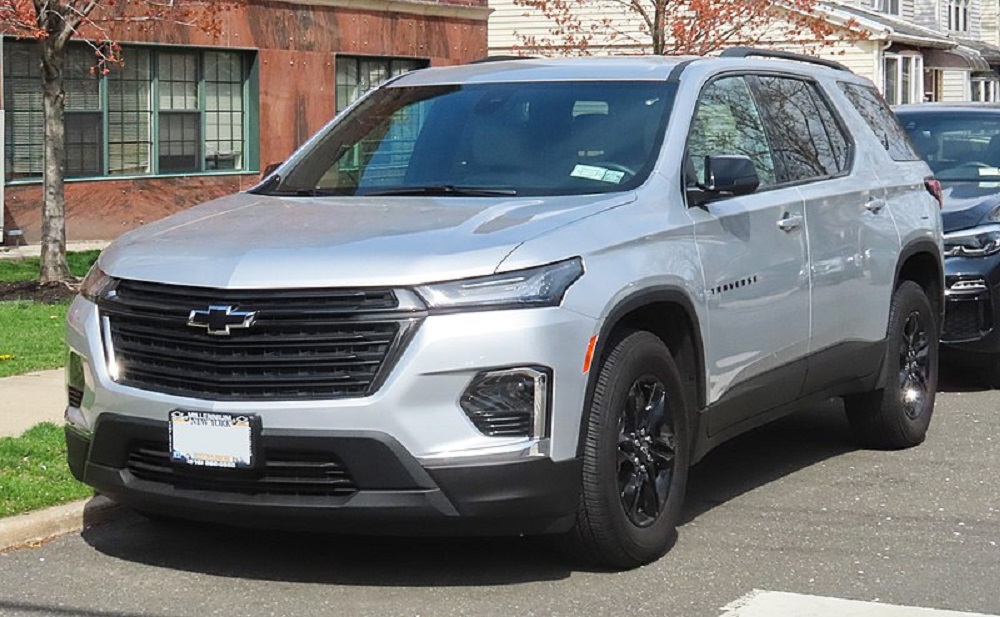If you’re driving a Chevy Traverse, you likely appreciate its roomy interior and family-focused design. However, like any vehicle, it can have its quirks—one being the gas cap.
Ignoring gas cap issues might seem minor, but it can lead to more significant headaches. Let’s explore how to spot and solve these problems before they turn into costly repairs.

1. Check Engine Light Activation
One of the most common issues Chevy Traverse owners have reported is the check engine light (CEL) illumination on the dashboard. This often accompanies an error code related to the evaporative emission system (EVAP).
A loose gas cap is frequently the culprit behind this issue. If the gas cap is not tightened properly, it can cause the CEL to activate. The seal on the gas cap can also become damaged or worn over time, leading to fuel vapor leaks that trigger the CEL.
Many Traverse owners on forums like TraverseForum have reported instances where a loose or damaged gas cap caused the CEL to light up. Chevrolet advises tightening the gas cap until it clicks and replacing it if the seal is damaged.
2. Fuel Smell
Another frequent problem Chevy Traverse owners report is a strong gasoline smell near the fuel tank area or inside the vehicle. This issue often indicates a potential fuel vapor leak, which can be unpleasant and concerning.
A leaking gas cap is a common cause of this problem. Fuel vapors can escape if the gas cap does not seal properly, resulting in a noticeable fuel smell.
Cracks or faults in the gas cap can also lead to vapor leaks. Many drivers have reported fuel smells linked to faulty gas caps, often resolving the issue by replacing the cap.
3. Difficulty in Fueling
Some Chevy Traverse owners experience difficulty when refueling their vehicles. This issue is often characterized by trouble inserting the fuel nozzle or the nozzle frequently clicking off during refueling, which can be frustrating and time-consuming.
One common cause of this problem is a misaligned gas cap. If the gas cap is not correctly aligned or seated, it can create pressure issues within the fuel tank, affecting refueling.
Another potential cause is a blocked vent in the gas cap, which prevents proper airflow and results in fueling difficulties.
Traverse owners often report these issues, mentioning that ensuring the gas cap is properly aligned or inspecting the vent for blockages can help resolve the problem.
4. as Cap Stuck or Hard to Remove
Another problem that Chevy Traverse owners sometimes encounter is difficulty removing the gas cap. This issue can make refueling frustrating, as the gas cap may require excessive force to unscrew.
One cause of this problem is thread wear. Over time, the threads on the gas cap can wear out or become damaged, causing it to stick.
Another potential issue is seal swelling. The gas cap seal can swell over time, particularly when exposed to fuel vapors and varying temperatures, making the cap harder to remove.
Chevrolet suggests that if a gas cap is difficult to remove due to thread wear or seal swelling, it should be replaced to ensure proper functionality. Regular maintenance and checking for any signs of damage can help prevent this problem.
5. Reduced Fuel Efficiency
Another issue that can arise from gas cap problems in the Chevy Traverse is a noticeable drop in fuel efficiency. This can concern owners as it affects the vehicle’s performance and increases fuel costs.
One reported cause of reduced fuel efficiency is leaks in the evaporative emission system (EVAP) due to a faulty gas cap. A bad gas cap can cause the system to lose pressure, leading to fuel vapor escaping.
This pressure loss can impact the overall performance of the fuel system, causing the engine to work harder and consume more fuel.
Traverse owners have reported instances where a faulty gas cap reduced fuel efficiency. Many have found that replacing the gas cap restored their vehicle’s typical fuel consumption.
Conclusion
Gas cap problems in your Chevy Traverse can significantly impact vehicle performance. Issues like the check engine light activation, fuel smells, difficulty fueling, stuck gas caps, and reduced fuel efficiency can often be traced back to a faulty gas cap.
Regular inspections and timely replacements can help prevent these problems, ensuring your Traverse runs smoothly and efficiently. When encountering these symptoms, always check the gas cap first to save time and avoid unnecessary repairs.
Was This Article Helpful?

Rami Hasan is the founder of CherishYourCar.com, where he combines his web publishing experience with a passion for the automotive world. He’s committed to creating clear, practical guides that help drivers take better care of their vehicles and get more out of every mile.
